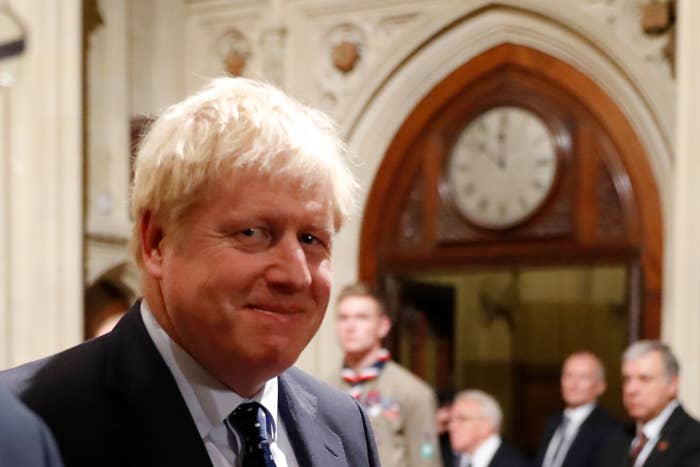
EU leaders could hold an extra European Council summit to discuss a Brexit deal before the end of October because an agreement is unlikely by the time of their scheduled meeting later this week, according to a diplomatic note seen by BuzzFeed News.
The memo says the chances are low of a text on customs arrangements, the most difficult sticking point in the negotiations, in time for leaders to make a decision when they gather in Brussels for the summit on Thursday and Friday.
Instead, the meeting’s conclusions will more likely focus on the terms of a possible extension of the Brexit deadline, with either Jan. 31, 2020, or later mooted as potential options should the UK ask to delay its departure for a third time.
A senior European government official urged caution, telling BuzzFeed News that a lack of agreement this week shouldn’t automatically be interpreted as entirely negative, and was as much to do with the lack of time as the substance of the negotiations.
Another EU source said that, with talks between the UK and the EU still ongoing, it was premature to definitively determine the contents of this week’s summit, and a deal, though difficult, was still possible.
Separately, a UK government official said that a special European Council could be used to strike a deal in the final days running up to Oct. 31, the date the UK is due to leave the EU.
Following a weekend of discussions, the EU’s chief Brexit negotiator Michel Barnier told the bloc’s 27 ambassadors on Sunday that there had been no breakthrough yet.
Barnier told the diplomats that the talks had focussed on customs arrangements.
Under prime minister Boris Johnson’s latest proposals, Northern Ireland would legally remain in the UK’s customs union, but would at the same time continue to abide by the EU’s rules on customs and tariffs, avoiding border checks in Ireland. The arrangement would in effect create a dual customs system that would see goods tracked and businesses having to apply for a rebate to cover any differences in tariffs.
One of several reservations raised by Barnier is the difficulty of knowing whether a good ultimately ends up in the EU’s market and supply chains.
EU officials believe that an agreement building on a Northern Ireland-only backstop, which would effectively keep Northern Ireland in the EU's single market and customs territory, would be a more feasible solution given the time available.
The backstop is the legally operative insurance mechanism included in the withdrawal agreement that guarantees that the border between Northern Ireland and the Republic of Ireland remains open after Brexit in all circumstances, while also protecting the integrity of the EU’s single market. Johnson has pledged to ditch it, while the EU insists that any alternative needs to achieve the same effects and be legally operative from the day Brexit happens.
UK MPs will gather for a special sitting on the Saturday following the European Council, where they will hold a "meaningful vote" on a deal if Johnson manages to agree one by that date, or the prime minister will be expected to announce he is sending a letter to Brussels requesting a Brexit delay.
The Benn Act passed by Parliament last month requires the prime minister to send the extension request letter on Oct. 19, if Parliament has not approved a withdrawal deal.
Johnson has repeatedly stated that he will refuse to countenance a Brexit delay beyond Oct. 31.
A senior official from a European government told BuzzFeed News that the mood in many EU capitals had hardened in recent weeks, and any request to prolong Brexit would need to be accompanied by a clear purpose.

